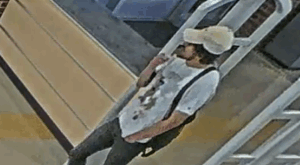CHATTANOOGA, TN (mocsnews.com) – College can be nerve-wracking and overwhelming, In the study, Stress in America 2020, 90% of students claim that academics is their biggest stressor. Faculty at the University of Tennessee at Chattanooga has made it a top priory to understand the pressures students face.
WUTC analyses the last two years of living with the pandemic and how students are coping, and what help is there for students to cope.
Katie Townsend, a Psychology major, shared her advice for studying and how she has been accommodated and encouraged by professors. “The best study tips I have are to be intentional with your time and time management,” Townsend said. “Something that I have found is to take big assignments and break them down.”
“One of my professors for the final gave us a 24-hour window, and we were able to do it whenever it fit best with our schedule, which was a really nice way to show concern,” Townsend said. “A lot more professors are accommodating with deadline extensions, being aware of students having internet issues, and medical issues.”
Chantelle Swaren, Associate Professor for Assessment and Outreach Librarian Administration, holds an M.B.A. from the University of Alberta and an M.L.I.S. from the University of Alabama. Swaren offered tips to college students for de-stressing, programs, and services available for students and things the library has done in the past.
“Before COVID, the student government association would host three to four nights of late-night study marathons, and they would bring in coffee, hot chocolate or some sort of food, basically just a little shot in the arm for students that were in the library all day and needed a five-minute change,” Swaren said.

Following coronavirus guidelines has changed what the library does during finals. Last semester, “we did a two-day live stream where we had different librarians do study breaks that included reading a story, knitting or doing a puzzle,” Swaren said.
There are a variety of resources that are available for students this semester. “The main thing that we hope students remember from the library’s perspective is that college is stressful and overwhelming, but there are resources available on campus and off campus,” Swaren said. “The Roth Reading Room provides a quiet environment for students to study, as well as the extended hours during finals.”
Students off campus can do instant chats online, text a question to a librarian or set up a Zoom consultation with a writing consultant. “I hope they know if they’re stuck or need help, we can help,” Swaren said. “I always encourage students to take study breaks, try and pull your head out of it, and recognize that it’s important but there is a time where it’s going to end.”
The Counseling Center at the University of Tennessee at Chattanooga is focused on providing mental and emotional care to students. Counselors are available by calling (423) 425-4438 or visiting UTC Counseling Center.
Clinical Professor and Counseling Center Director Dr. Keilan Rickard shared issues that contribute to student stress, “Definitely workload, being a student is a full-time job it is just like any job you are working 40 plus hours a week. If you are having to work on top of that, let’s say that you must pay for your car insurance or pay for food, and so you’re working a small part-time job, that could be a contributor to stress,” Keilan said.
While major world events have an impact, efficient time management skills could relieve the stress and tension students face, as well as sleep schedules, breathing exercises and talking to someone. If you or someone you know is experiencing a mental health crisis, contact UTC’s CARE line.
 Mocs News Reporting the news that matters most to UTC
Mocs News Reporting the news that matters most to UTC




